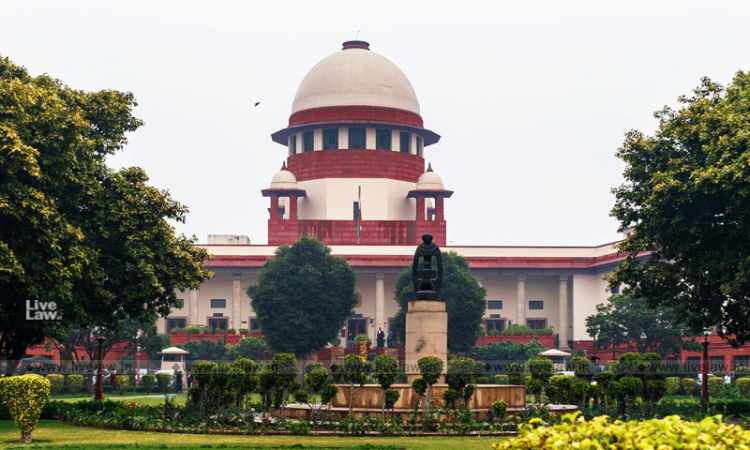Supreme Court Grants Interim Relief To Jute Mills - Extends Interim Protection From Coercive Action In The Meanwhile
LIVELAW NEWS NETWORK
26 May 2020 5:31 PM IST

A bench of Hon'ble Mr. Justice Ashok Bhushan, Hon'ble Mr. Justice Sanjay K. Kaul and Hon'ble Mr. Justice M.R. Shah while hearing the Writ Petition filed on behalf of the Indian Jute Mills Association today extended the interim protection afforded to it on the previous date i.e. 15.05.2020.
The Writ Petition, filed under Article 32, of the Constitution of India, challenges the constitutional validity of clause (iii) of the Government Order No. 40-3/2020-DM-I(A) dated 29.03.2020 issued by the Ministry of Home Affairs, Government of India read with the G.O. No. CLC(C)/Covid-19/Instructions/LS-1 dated 30.03.2020 and clause (iv) of the Government Order No. 63-CS/2020 dated 29.03.2020 issued by the Chief Secretary, Government of West Bengal. The Petitioners have also challenged the refusal on the part of the Government of West Bengal to allow the operation of the jute mills in the State even though the same are exempted from the ambit of the lockdown as per the Order No. 40-3/2020-DM- I(A) dated 24.03.2020 and subsequent Order Nos. 40-3/2020-DM-I(A) dated 15.04.2020 and 01.05.2020.
Mr. Mukul Rohatgi, Ld. Senior Advocate appearing on behalf of the Petitioner Association submitted that in view of the latest Notification dated 17.05.2020 issued by the Ministry of Home Affairs, Government of India, all directives issued under the previous Notifications have been superseded and have ceased to be in force from 18.05.2020. In view of the same, it was submitted that the present Petition solely relates to the validity of the directives issued under the Notification dated 29.03.2020 for the period uptill 18.05.2020.
It was submitted that "jute textile" is an essential commodity within the meaning of the Section 2A of the Essential Commodities Act, 1955 (Act No. 10/1955) and used for packaging of food grains, sugar etc. under the Jute Packaging Materials (Compulsory Use in Packing Commodities) Act, 1987 (Act No. 10/1987). Jute bags are, thus, compulsorily purchased at controlled prices by the Ministry of Textiles, Government of India through the Jute Commissioner - by way of Production Control and Supply Orders (hereinafter referred to as "PCSOs") issued under Clause 4 of the Jute and Jute Textiles Order, 2016. It has been submitted that in view of the above, the Jute mills are duty bound to supply the jute bags on the basis of the PCSOs issued by and at the price so fixed by the Jute Commissioner.
In view of the same, Mr. Rohatgi submitted that the present Petition is distinct from the other batch of matters wherein the veracity and validity of the Notification dated 29.03.2020 has been challenged. The regulated nature of the business of jute mills cannot, therefore, be equated with the Petitions filed by other private entities before the Hon'ble Supreme Court of India.
Accepting his submissions, the Supreme Court of India has directed the present Writ Petition to be listed next after three weeks and directed that the interim protection afforded vide order date 15.05.2020 be extended in the meanwhile. The Supreme Court of India has also directed the Union of India, and the Government of West Bengal to file their respective replies to the Petition in the meanwhile.
The Petitioner Association was represented by Mr. Mukul Rohatgi, Ld. Senior Advocate, Mr. Abharajit Mitra, Ld. Senior Advocate, Mr. Nikhil Rohatgi, Advocate, Ms. Nandini Gore, Senior Partner, Ms. Tahira Karanjawala, Principal Associate, Mr. Arjun Sharma, Senior Associate, Mr. Jasvir Singh Sabharwal, Associate with Karanjawala & Co. Advocates and Ms. Rajshree Kajaria, Advocate.


